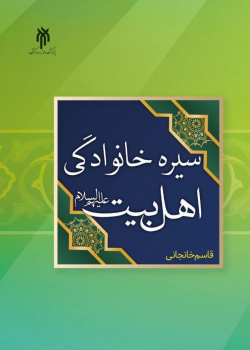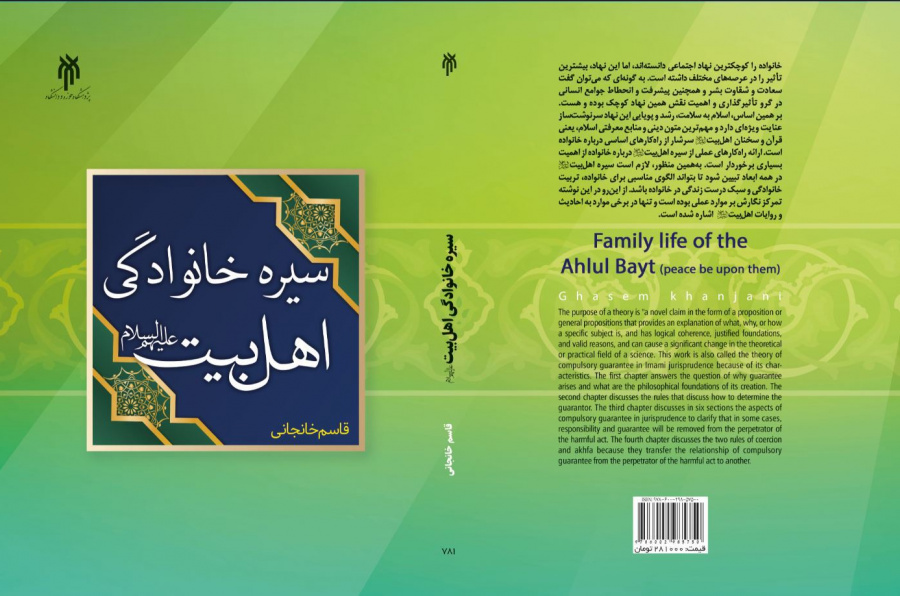



سیره خانوادگی اهل بیت (ع)
Family life of the Ahlul Bayt (peace be upon them)
سیره خانوادگی اهل بیت (ع)
خانواده را کوچکترین نهاد اجتماعی دانستهاند، اما این نهاد، بیشترین تأثیر را در عرصههای مختلف داشته است. به گونهای که میتوان گفت سعادت و شقاوت بشر و همچنین پیشرفت و انحطاط جوامع انسانی در گرو تأثیرگذاری و اهمیت نقش همین نهاد کوچک بوده و هست. بر همین اساس، اسلام به سلامت، رشد و پویایی این نهاد سرنوشتساز عنایت ویژهای دارد و مهمترین متون دینی و منابع معرفتی اسلام، یعنی قرآن و سخنان اهلبیتb سرشار از راهکارهای اساسی درباره خانواده است. ارائه راهکارهای عملی از سیره اهلبیتb درباره خانواده از اهمیت بسیاری برخوردار است. بههمین منظور، لازم است سیره اهلبیتb در همه ابعاد تبیین شود تا بتواند الگوی مناسبی برای خانواده، تربیت خانوادگی و سبک درست زندگی در خانواده باشد. از اینرو در این نوشته تمرکز نگارش بر موارد عملی بوده است و تنها در برخی موارد به احادیث و روایات اهلبیت(ع) اشاره شده است.
Family life of the
Ahlul Bayt (peace be upon them)
Ghasem khanjani
The purpose of a theory is "a novel claim in the form of a proposition or general propositions that provides an explanation of what, why, or how a specific subject is, and has logical coherence, justified foundations, and valid reasons, and can cause a significant change in the theoretical or practical field of a science. This work is also called the theory of compulsory guarantee in Imami jurisprudence because of its characteristics. The first chapter answers the question of why guarantee arises and what are the philosophical foundations of its creation. The second chapter discusses the rules that discuss how to determine the guarantor. The third chapter discusses in six sections the aspects of compulsory guarantee in jurisprudence to clarify that in some cases, responsibility and guarantee will be removed from the perpetrator of the harmful act. The fourth chapter discusses the two rules of coercion and akhfa because they transfer the relationship of compulsory guarantee from the perpetrator of the harmful act to another.
